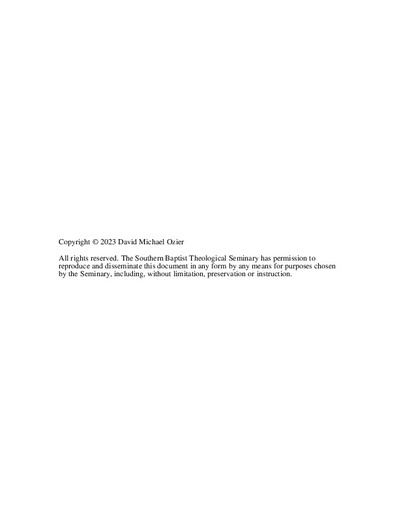Walking in the Spirit in Galatians: Comparing Obedience and Agency in Galatians, 1QS, and 4 Maccabees
Subject
Bible. Galatians V, 16-25--Criticism,, interpretation, etc.Obedience--Biblical teaching
Free will and determinism--Biblical teaching
Fourth Book of Maccabees
Abstract
The focus of this work is on divine and human agency and walking in obedience. This dissertation examines what Paul says about divine and human agency with regard to walking by the Spirit in Galatians, focusing on 5:16–25, with an eye toward what 5:17 specifically adds to the conversation. Divine and human agency in Galatians is then compared to 1QS and 4 Maccabees. Chapters 2 and 3, examine what can be determined about the role the divine and the human agents play in the human agent’s act of walking in obedience in 1QS and 4 Maccabees, respectively. Chapter 4 analyses the role the cross plays in Paul’s argument against the law. Specifically, it examines the cross as the turning point between the two apocalyptic ages (cf. 1:4; 6:14–15), through which the Spirit was given, and what implications the turning of the ages and the giving of the Spirit have for divine and human agency and walking in obedience. Chapter 5 turns to Galatians 5:16–25 and examines what can be understood about divine and human agency with regard to walking in obedience, giving special focus to what verse 17 adds to the conversation, which scholars do not interact with when discussing agency in 5:16–25. In chapters 2, 3, and 5, I use John Barclay’s models of divine agency to better understand the relationship between the divine and human agent in each work. Before concluding this dissertation, chapter 6 compares my findings about divine and human agency in walking in obedience in 1QS, 4 Maccabees, and Galatians. In this, I compare all three texts together as well as two of the texts with the third in order to compare my findings from various points of view to better understand how divine and human agency in Galatians compares and contrasts to the Jewish texts.

